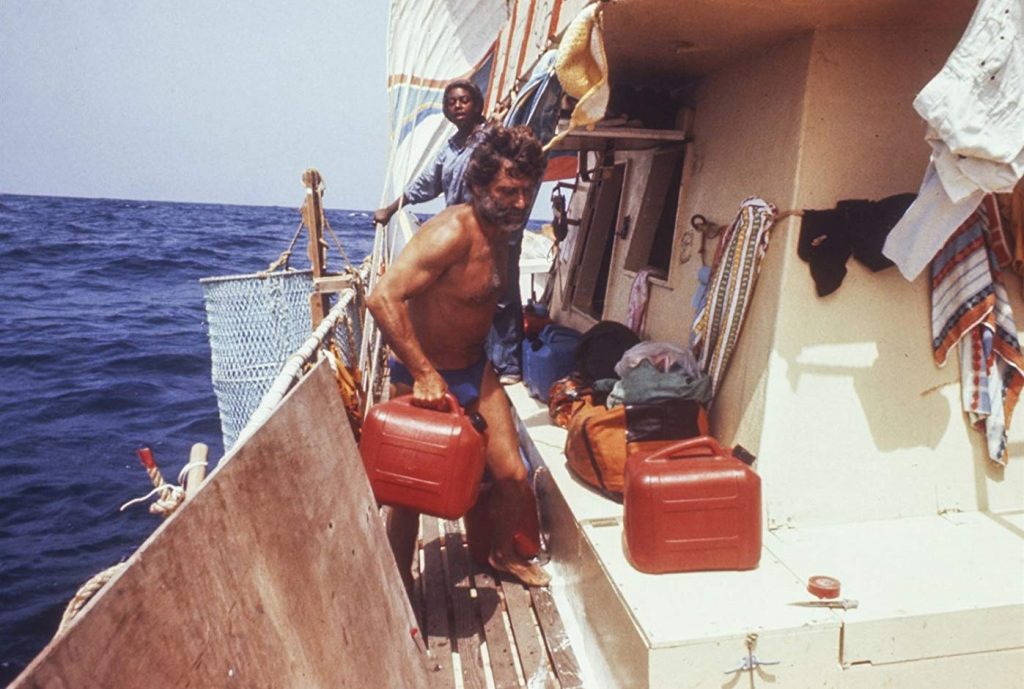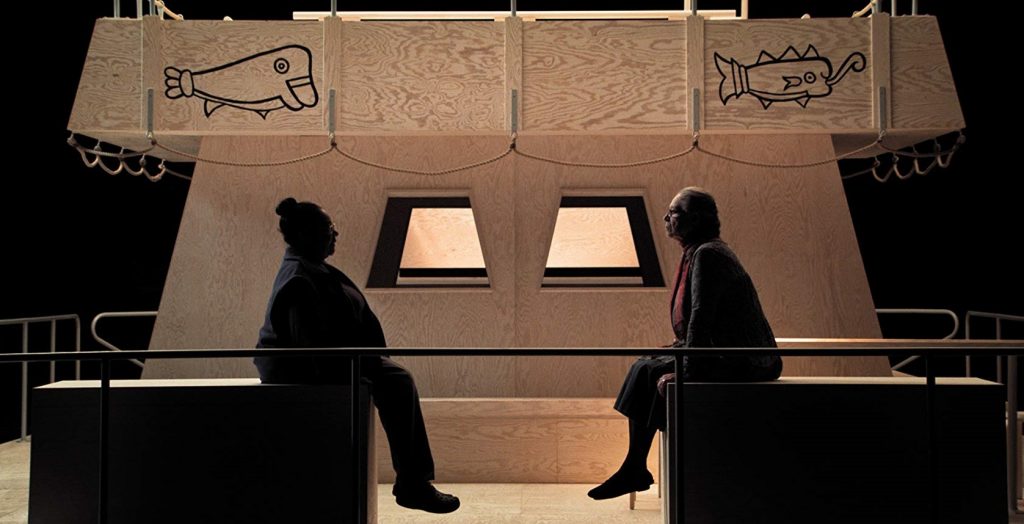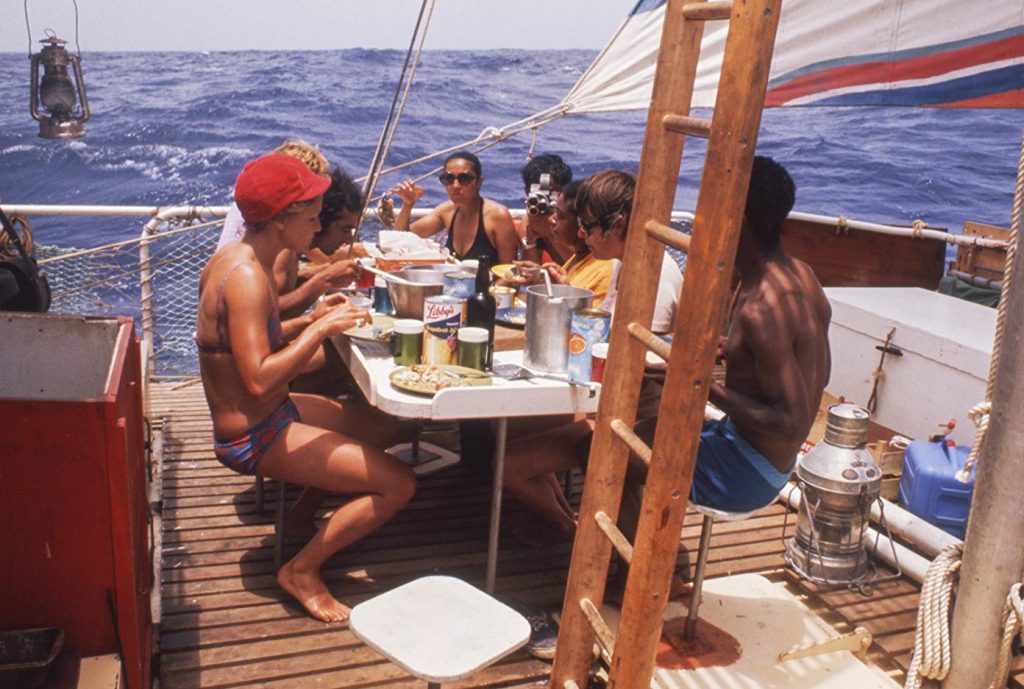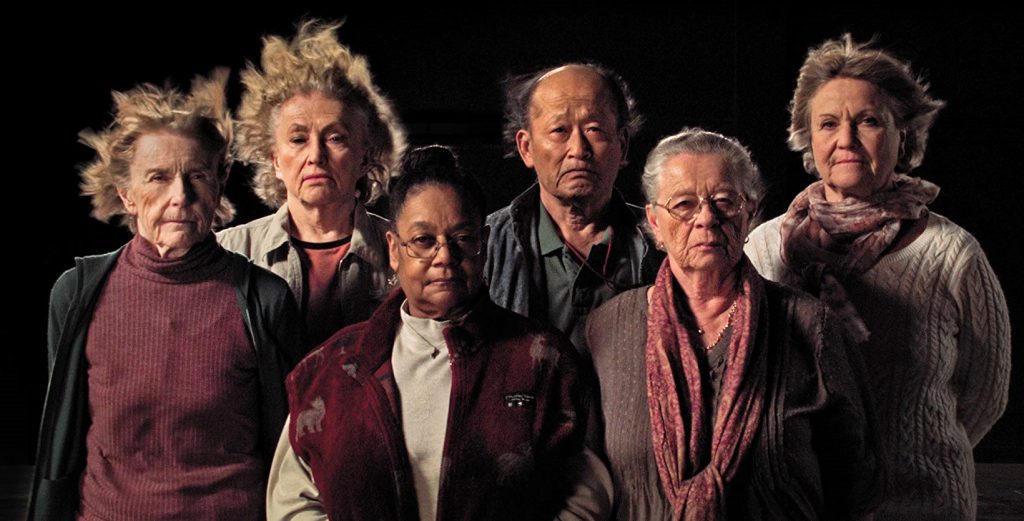
The Raft opens June 21st at Digital Gym in San Diego.
As many readers know, there are plenty of great documentaries out there that bring true stories to light that would either not get the attention they deserve or be completely forgotten. The Raft marks one of those productions, following an ill-fated 1973 study that appeared quite reckless, dangerous and less than well-prepared, yet was funded and carried out by highly educated minds.

The concept came from the mind of social anthropologist Santiago Genovés, a Spanish-born PhD and professor at the University of Mexico. Studying the effects of aggression in animals and theorizing on how to apply these lessons to humanity, the academic invented a study dubbed the “Peace Project.” He enlisted ten volunteers to spend three months completely isolated on a small raft floating from the Canary Islands to Mexico. The first task was selecting applicants who would find the trip difficult for personal and physical reasons. After noting that monkeys would fight over access to females, Genovés sought to foster conflict by bringing a variety of different nationalities aboard and also gave women positions of power, hoping it would incite more frustrations and jealousy on the part of male travelers.

As you might have guessed, this study of human behavior did not progress as expected. Some 45 years later, the feature incorporates new interviews with several of the participants along with film footage of the journey and press releases/news reports. Much of it is narrated courtesy of Genovés himself, who recorded his thoughts and observations regularly over the three-month trip. Through the new interviews, the group state that they got on famously and cohabitated as well as could be hoped for given that they were packed together like sardines. They share amazing tales as events progress, noting the increasingly peculiar behavior exhibited by Genovés and his attempts to cause strife.
These rather forceful actions included not only collecting odd data on the participants, but having them fill in questionnaires about whom they liked or disliked on the raft. It becomes clear that the professor was obsessed and overanalyzing their actions; he exaggerates their growing propensity for violence in his recordings. In the interviews, the sea-faring group openly wonder how their leader could possibly chart the sexual tension onboard or the general stress within the group. They also note their frustration after Genovés resorts to revealing the most embarrassing survey details publicly in order to start fights.

The depictions are remarkably tense and plenty of conflict does arise, although from unexpected sources. The media soon get involved and dub the experiment as a free-wheeling “Sex Raft.” After the team face an oncoming hurricane, things get even more complicated. With so many technical variables involved, along with random attempts to artificially create stress and violence, it’s amazing no one who approved the project questioned the methods being used (although admittedly, the university began to distance itself soon after the raft set sail). Genovés clearly bullies the participants, forcing them to bend to his will and influence the outcome of his experiment. It’s completely understandable that these methods ultimately lead to extreme reactions, including talk of mutiny and even murder.
These details are well detailed in a generally linear manner, with tales of the trip unfolding and progressing as they occurred organically. The volunteers express what they took away from the experiment, and interviewers are wise to ask if they now forgive their manipulator. It all leads to some curious revelations as the participants are given the chance to share their thoughts about the experiment, its results, and how in some respects their behavior showed more optimistic qualities than predicted.

All in all, this is a very interesting and engaging documentary with plenty of surprises. One could even suggest the original experiment served as something of a precursor to modern reality TV shows (at the very least that the outlandish techniques witnessed here bridge social studies and bizarre entertainment). Regardless, today’s show producers shouldn’t anticipate an honorary PhD in their mailbox for their efforts. In any case, The Raft is a fascinating documentary that provides insight into human nature and serves as a warning against moving forward with these types of “social experiments” without monitoring the operators and taking the consequences of their actions into account.


